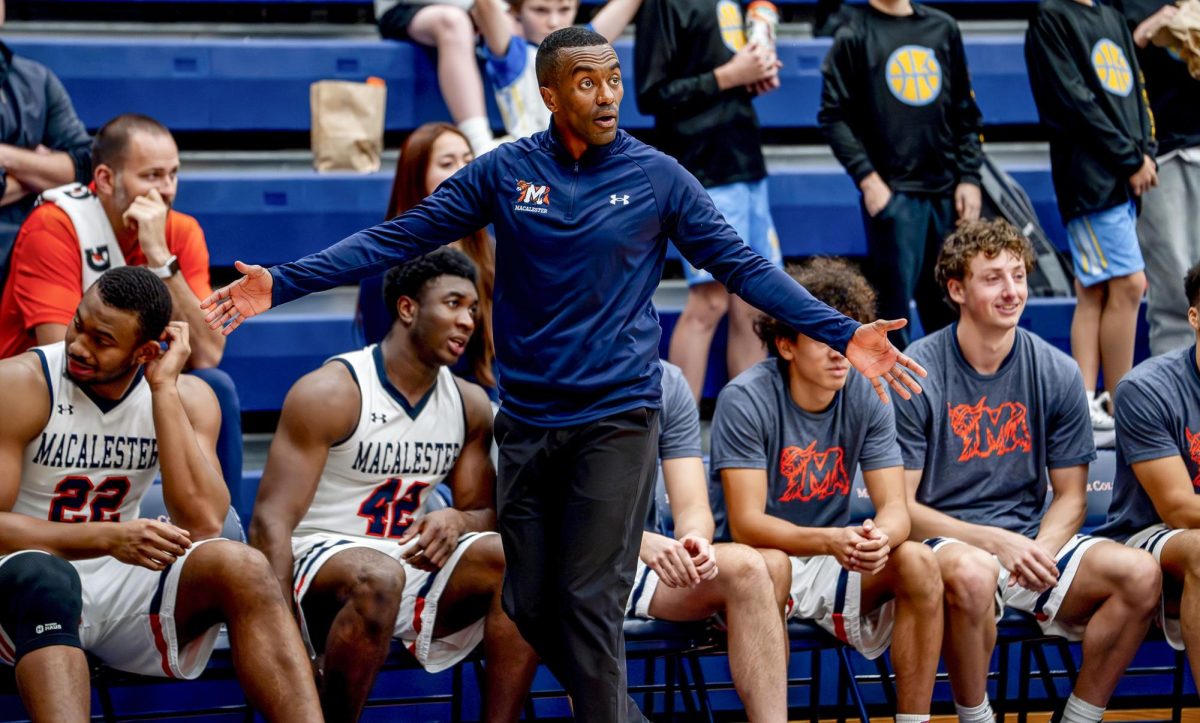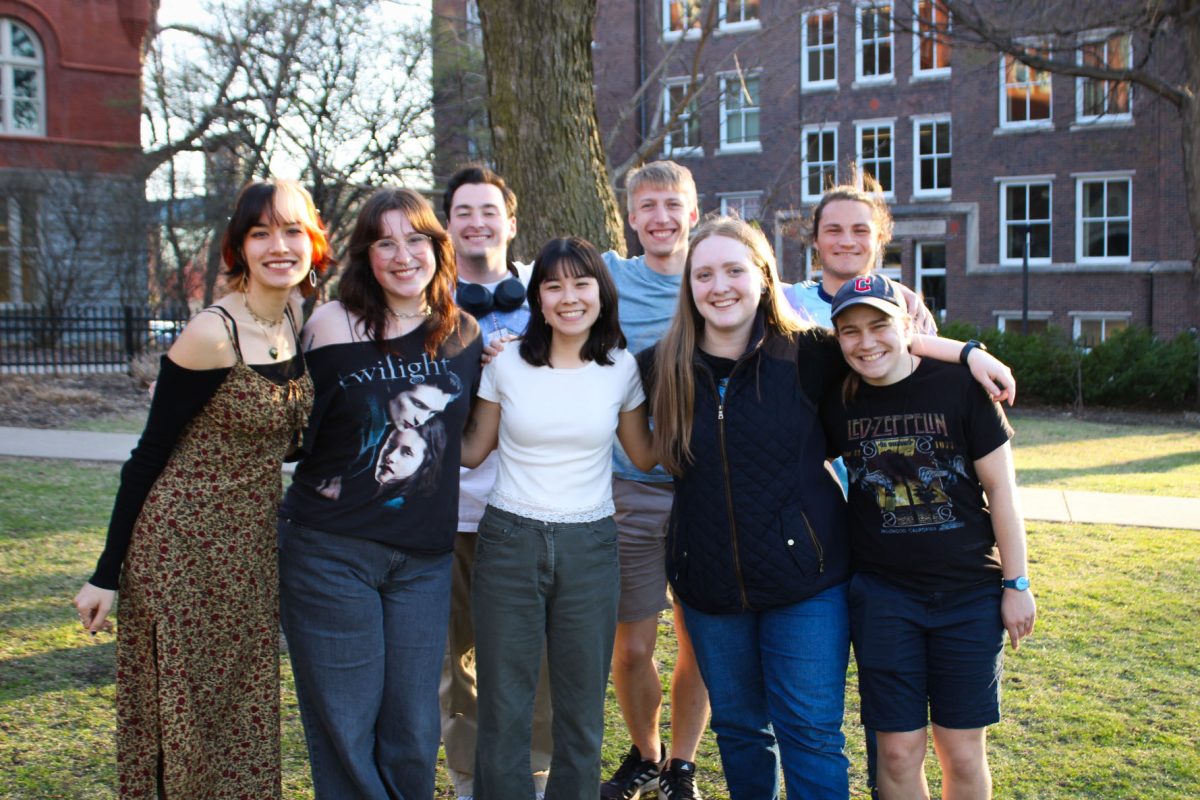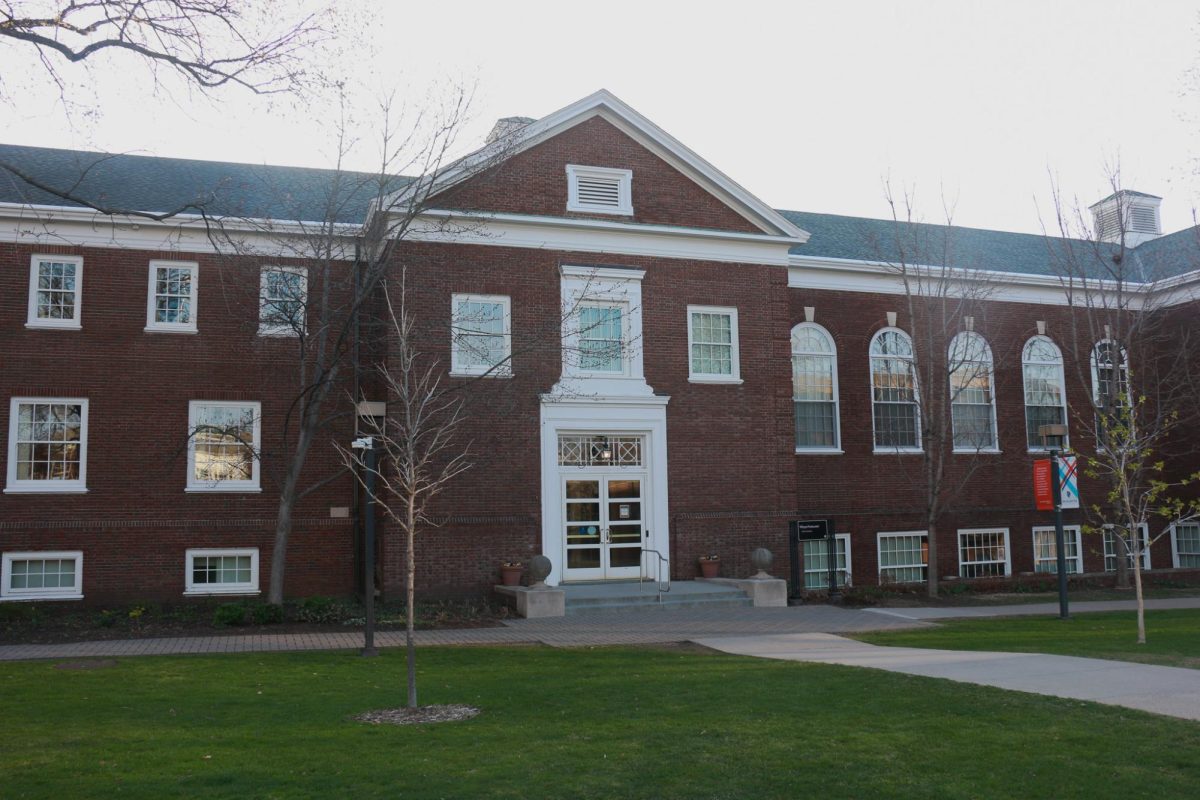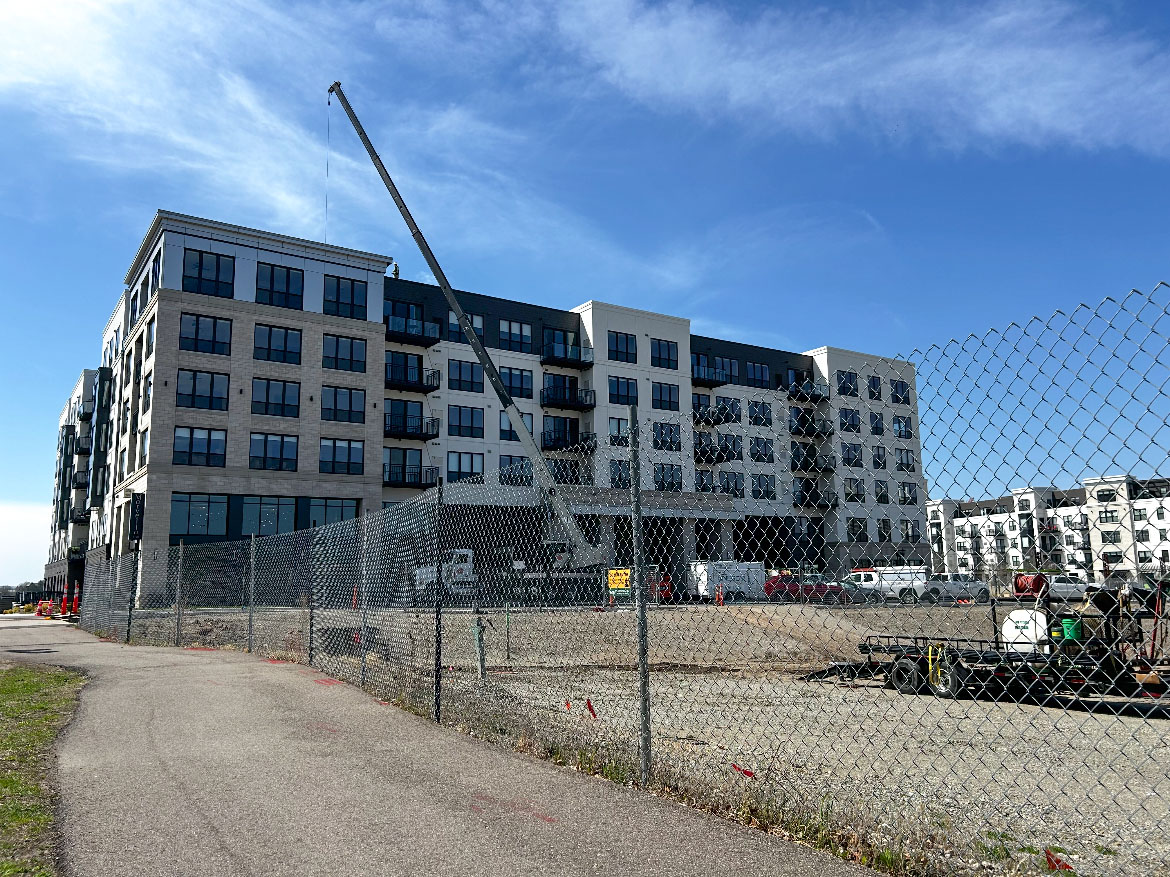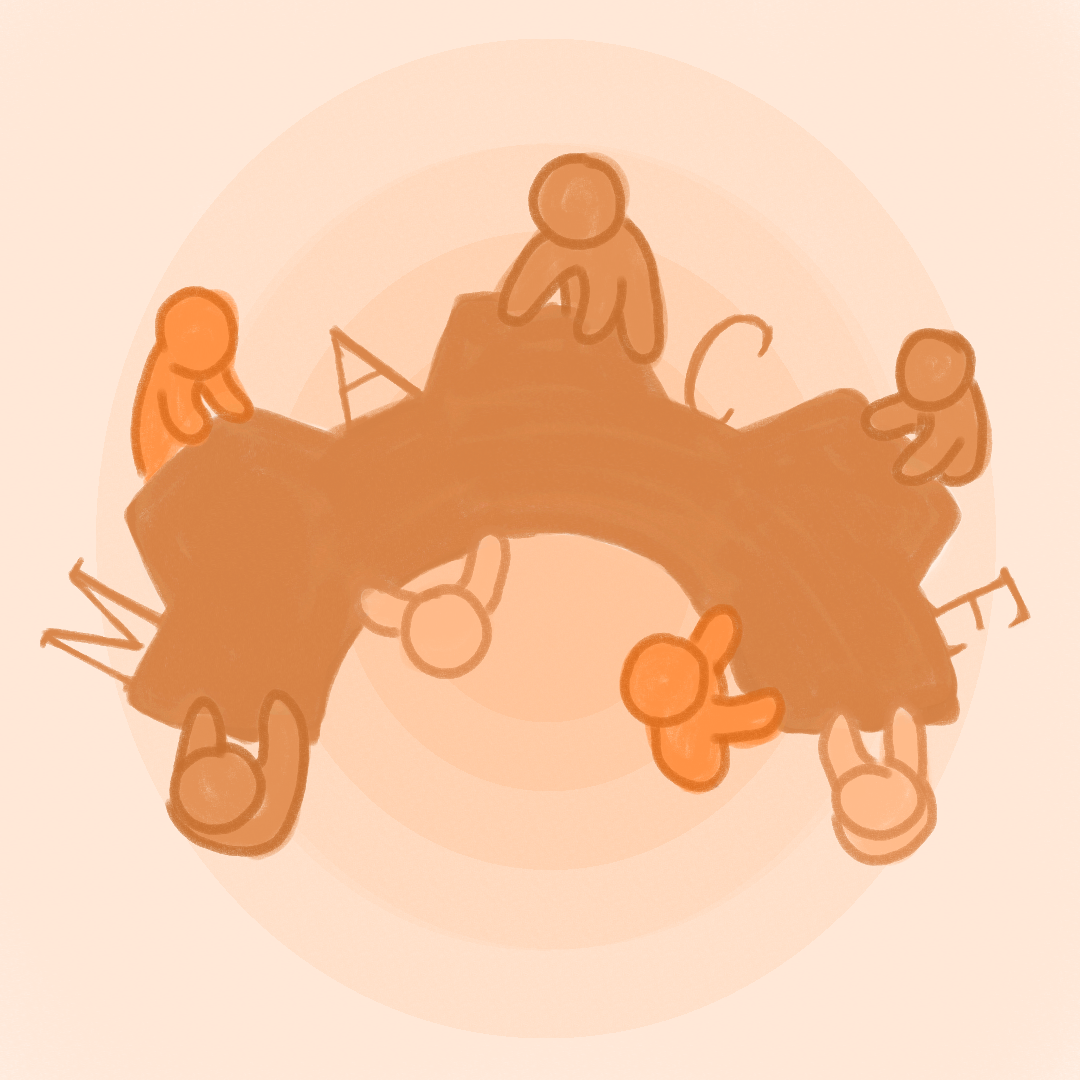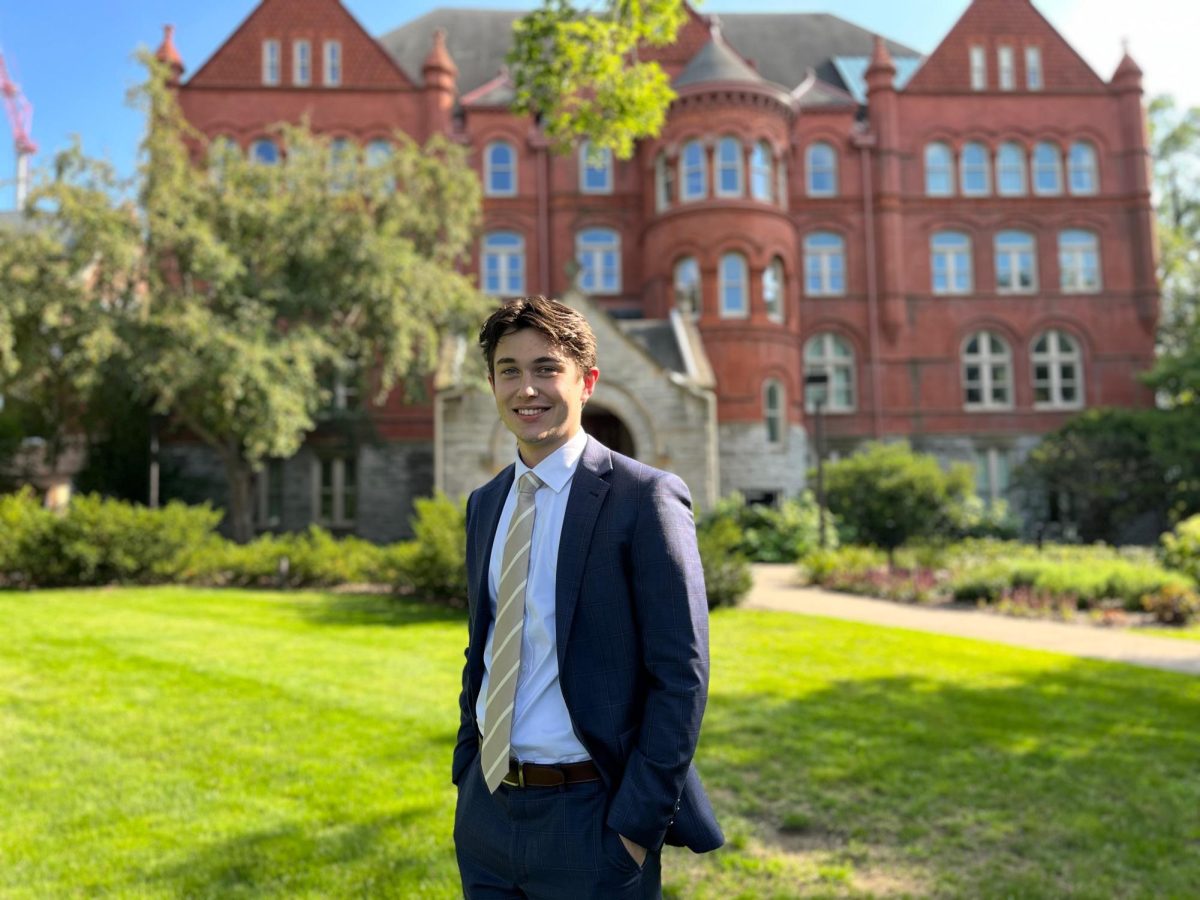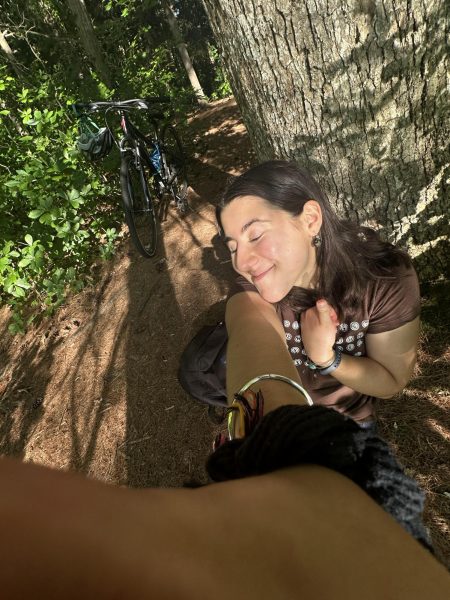On Thursday, March 21, the Minnesota Youth Activist Alliance (MNYAA) held a Reproductive Justice Youth Summit in the lower level of the Ruth Stricker Dayton Campus Center. MNYAA, which is made up of students from Macalester and the University of Minnesota (UMN), is a local chapter of the national organization Advocates for Youth. Through the event, they hoped to get students involved in reproductive justice, train participants on organizing and sexual education, and promote their campaign to get medicated abortion access on Macalester’s campus.
“I think Macalester’s campus has a lot of really motivated students, but can sometimes struggle on action with that motivation,” Lauren Schenk ’24, an organizer with MNYAA, said. “I think doing things like this, galvanizing the student body and saying ‘this is really important, and there’s a lot of other students who think this is important,’ while doing actual tangible work for it, can be really good to see.”
Participants held the importance and urgency of fighting for reproductive rights close at heart.
“[Reproductive rights are] at risk in our current governmental system, and it’s important to be educated if you’re going to be fighting for your rights,” Avery Timmerman ’27 said.
To start the event, MNYAA organizers defined reproductive justice as the right to have or not have children, to access contraceptives and abortion, and to raise children in sustainable and safe communities.
The organizers also debunked common myths about reproductive justice. In doing so, they focused on intersectionality. The reproductive justice movement was founded by Black women and is essential for queer people; sex education curriculums do not often include safer queer sex practices.
The event then broke into two sessions: a campus organizing training and a sex education training.
The organizing training kicked off with a reminder about the purpose of direct action organizing.
“We do it because we want to win concrete improvements in our own lives and in the lives of others,” Tori Emerson, a MNYAA organizer and junior at UMN, said. “We want to make people aware of the power they hold by helping them achieve their goals and we want to alter the power relationships put in place between people. In doing so we help to build strong communities [and] strong networks.”
MNYAA leaders then walked participants through the steps of successful organizing, with an emphasis on making change on a college campus and avoiding burnout.
They encouraged the audience to form a specific and locally-focused demand for what they hope to change; assess their resources, including people, money and time; choose an authority figure to try to persuade and build their base. They also emphasized that educating people should not be the only tactic that organizers use, and that they should build up in small, escalated steps to larger actions like protests and sit-ins.
In their list of tactics, MNYAA organizers placed an emphasis on the power of storytelling to make change, inviting participants to share their personal stories and the reasons why reproductive justice is important to them.
Many audience members talked about their experience growing up in conservative states and struggling to access condoms and other means of having safer sex, describing how scary that was.
“I’m from Missouri; Missouri sucks ass,” Jane He ’27 said. “I never received a sex education. I didn’t know what the difference between a vulva and a vagina was until I was a junior in high school. It’s important [that] people know about these things so they can make informed decisions about their bodies.”
Other audience members focused on the importance of access to gender-affirming care.
“I’m from Iowa, and the Iowa government has been targeting trans youth really, really, intensely,” Luke Rowley ’27 said. “My brother is trans and wants to start hormone therapy, [but] it’s just so difficult to get hormone therapy in a place like Iowa, for someone who could really benefit from it.”
The session ended with a Q&A from the audience in which MNYAA organizers underscored the importance of taking care of oneself and one’s mental health during an organizing campaign.
Students who chose to attend the Laurie Hamre Center for Health and Wellness-led workshop titled “Sexual Respect and Everyday Consent” were welcomed by the Director of Health Promotion and Sexual Respect Tiger Simpson.
In the beginning of his presentation, Simpson explained why talking about sex and respect still matters. Most sex education workshops focus on prevention instead of promotion, which can limit their effectiveness.
“Most of what we do is telling people to not do things — don’t hurt somebody, don’t assault somebody — instead of telling people how you actually have good, healthy relationships,” Simpson said.
Simpson discussed the importance of being conscious of who has power and control in relationships. They stated that especially in such a diverse environment like Macalester, we need to be conscious of the power dynamics and use the power we have productively.
“[We must use] the power we have to create environments where we can have open, honest dialogues, where [everybody] knows that they’re able to change [their mind about] consent, their boundaries and [what] they’re comfortable and not comfortable with,” Simpson said.
Continuing the conversation about respect, Simpson asked the group some questions about flirting and how to determine if someone is flirting with you. The participants reached a consensus the only way to find out is to ask, which led Simpson to explain why the topic of flirting is so pivotal to this training. He highlighted ways in which one can distinguish between flirting and sexual harassment and how harmful gender roles can be in flirting.
“By [gendering roles in flirting], we immediately give one party power over somebody else,” Simpson said. “If, in our mind, flirting is waiting for somebody to come up to us, we automatically assign them [as the one] with power in this relationship. … It is important to find ways to use our power to say what we are comfortable with and to start [a] dialogue.”
Simpson then gave a step-by-step guide on how to be an active bystander who promotes sexual respect, with the first and most important step being to recognize a situation that could be a potential problem. According to Simpson, before taking action, it is crucial to check biases and ensure that we are not acting on cultural or language prejudices. After, we must take action and prevent a situation in which someone could be put in danger.
“If you check your bias, you then need to feel responsible to help,” Simpson said. “[To] feel responsible to help means you actually will step in and do something, instead of waiting for somebody else to do it.”
After a short break, participants from both trainings returned to the John B. Davis Lecture Hall, where MNYAA members Carley Herman ’27 and Vi Danahy ’27 held a presentation about the ongoing medicated abortion campaign that their group is leading. They first explained what medicated abortion is and why they advocate for the Hamre Center to provide it. They then turned to the survey that MNYAA carried out in February 2024, hoping to obtain data which would show the need for medicated abortion at Macalester.
“Our main takeaway [from this survey] was that the vast majority of people that we’ve talked to support medicated abortion access on campus,” Danahy said.
Other findings showed that the majority of respondents do not have a concrete idea where to get an abortion in the Twin Cities, and only a small number would seek out assistance from the Hamre Center.
After receiving these results, MNYAA met with members of the Hamre Center to advocate for medicated abortion. Due to understaffing and low funding, however, the Hamre Center is not planning to change their policies regarding medicated abortion access on campus in the near future. The only services that the Hamre Center is currently providing are emergency contraceptives and STI testing.
Following this discussion, Professor Erika Busse-Cardenas delivered the keynote address, which took the form of a conversation. She engaged the audience on their definitions of reproduction, reproductive justice, intersectionality, and other related topics.
Busse-Cardenas pointed out that the reproductive justice movement goes beyond the pro-choice movement, which rests on the assumption that the ability to be pregnant has not been controlled.
“Is that [assumption] true in a country where, in the ’60s and ’70s, many Black women have been sterilized? In a country [in which] women who have crossed the border and been captured and sent to detention centers have been sterilized or are being sterilized?” Busse-Cardenas asked. “That’s why this group of women see [that] this movement is not speaking to us.”
She then connected these topics to her research around reproductive rights and gender-based violence in Peru and Uruguay.
Concluding the event, MNYAA encouraged the audience to fill out an interest form and join them in their ongoing efforts to improve reproductive healthcare at Macalester.
“Reproductive justice is important for everybody,” Herman said. “[If you are not] a cis woman, you are still included [and] we will gladly appreciate your help.”


